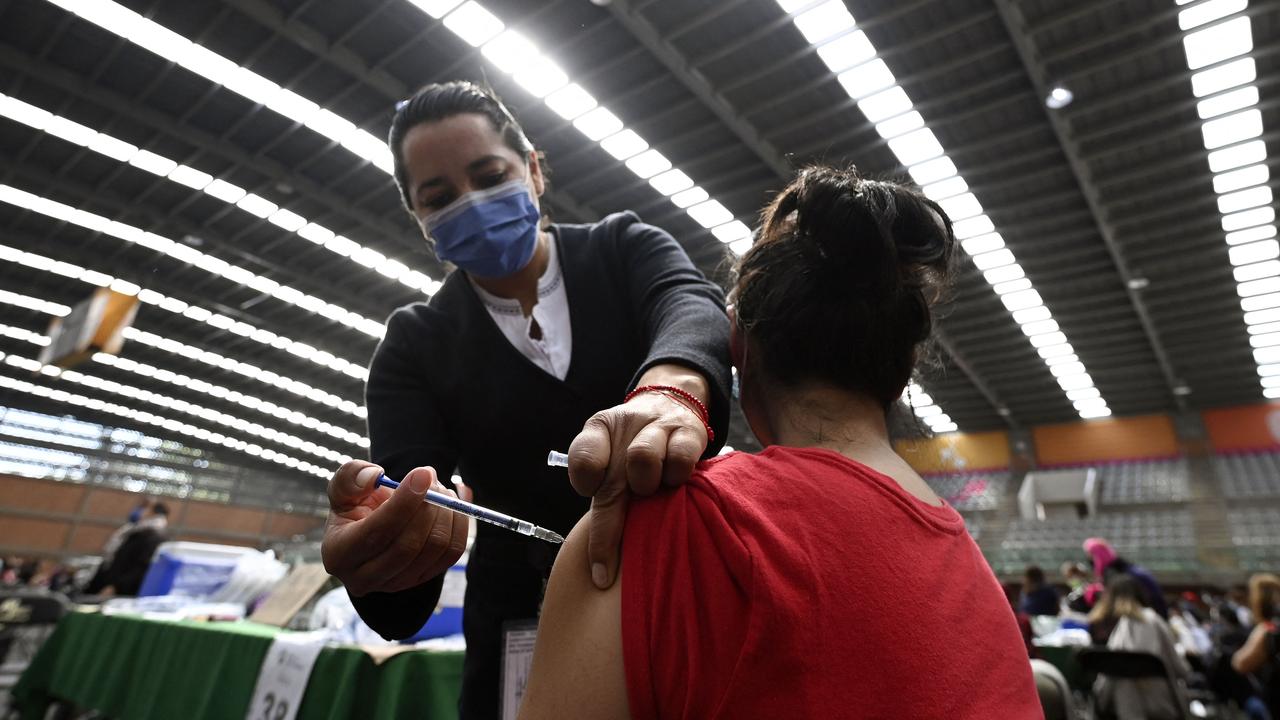Why you may only need one Covid booster – for now
Will we need a fourth dose anytime soon? Not for a long time, according to experts who are now saying third time’s the charm against Omicron.

With coronavirus vaccines, it seems the third time’s the charm against Omicron.
While the milder but more transmissible variant of Covid-19 has confounded public health experts with its ability to evade the antibody protection provided by vaccines, new studies claim that a third dose “prompts the body to make a much wider variety of antibodies” than either the first or second round of the same shot.
“If you’ve had a third dose, you’re going to have a rapid response that’s going to have quite a bit of specificity for Omicron, which explains why people that have had a third dose do so much better,” Rockefeller University immunologist Michel Nussenzweig, who led one study, told The New York Times this week.
As the uptake of boosters slows to a crawl in the US, Professor Nussenzweig and other experts appear to be attempting to reassure the public that three doses may be all they need for a long time.
Only about 28 per cent of the US population has received a booster shot.
After a strong uptake from early September when third doses began rolling out, the number of booster doses administered has virtually flatlined since the start of February.
Stream the latest news on COVID-19 with Flash. 25+ news channels in 1 place. New to Flash? Try 14 days free now>

Earlier this month, White House chief medical adviser Anthony Fauci told reporters that Americans may soon need a fourth dose after data from the Centres for Disease Control and Prevention (CDC) showed protection offered by mRNA vaccines began to wane after four months.
“There may be the need for yet again another boost – in this case, a fourth-dose boost for an individual receiving the mRNA – that could be based on age, as well as underlying conditions,” Dr Fauci said, clarifying that a fourth dose recommendation would likely not be made “across the board for everyone”.
Israel has already begun rolling out fourth doses, although one study there concluded even a second booster was “not good enough” to protect against the vaccine-evading Omicron variant.
But in the article on Tuesday, The New York Times said “a flurry of new studies” published in top journals including Nature and Cell suggest that Americans may not need another shot “for many months, and perhaps not for years”.
“Three doses of a Covid vaccine – or even just two – are enough to protect most people from serious illness and death for a long time, the studies suggest,” the newspaper wrote.
It comes after Pfizer chief executive Albert Bourla said last month that two doses of its current Covid-19 vaccine offer “very limited protection, if any” against Omicron but three doses “offer reasonable protection against hospitalisation and deaths”.
Both Pfizer and Moderna are working on Omicron-specific versions of their vaccines, and the World Health Organisation (WHO) has called on vaccine makers to review the “strain composition” to ensure they “continue to provide WHO-recommended levels of protection against infection and disease”.

But The New York Times, citing the new studies, said in addition to antibodies, the Pfizer, Moderna, J&J and Novavax vaccines produced specialised immune cells called T cells that “are about 80 per cent as powerful against Omicron as other variants”.
Most research on vaccine efficacy to date has focused on antibody levels which spike after vaccination, rather than more difficult to measure but more robust T-cell and B-cell immunity.
“You will see a decrease of the antibody levels over time, but if memory B cells are still there, and memory T cells are still there, they can kick back into action relatively quickly,” Alessandro Sette from La Jolla Institute for Immunology told the newspaper.
Earlier this month, the Australian government ditched the term “fully vaccinated” in favour of “up to date”, saying anyone who did not receive their booster within six months would be considered “overdue”.
Nearly 11 million Australians have received a booster as of Tuesday, according to Health Department figures.
Experts have previously cautioned that it was too early to say whether a fourth dose would be needed.
“The thing a lot of people are concerned about is that it’s going to be every three or four months, and that’s not the case,” Associate Professor Paul Griffin, director of infectious diseases at Mater Health Service, said earlier this month.
“I think the majority of us agree three or four-monthly is not practical or feasible, nor is it likely to be required.”






